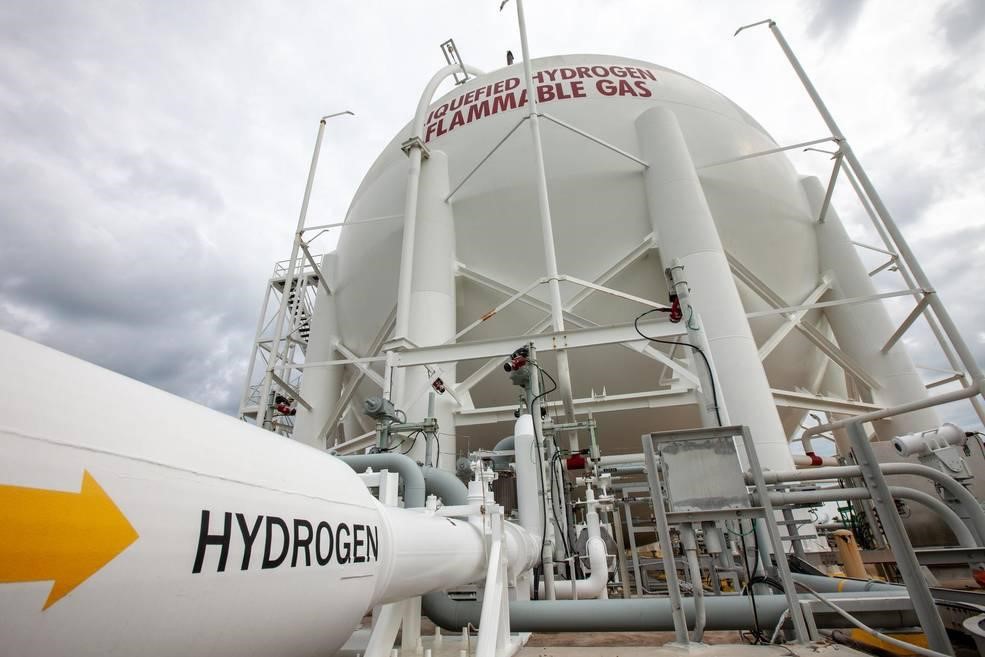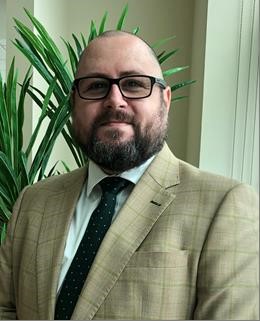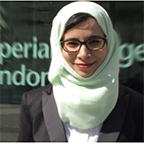
- 18 Jul 2023
Hydrogen: More Hype than Opportunity?
(This event was organised by MEI Political Economy research cluster.)
Countries around the world – from oil-producing Gulf Arab states to net-energy importers in South-east Asia – have turned to hydrogen for energy security, environmental, and economic reasons. Hydrogen has been largely seen as a clean fuel with potential to decarbonise sectors such as transportation (shipping and aviation) and industry (e.g., steel and chemicals), keeping global warming in check. But how realistic is hydrogen development? Is the technology commercially viable? Is the infrastructure, both physical and regulatory, in place? The Middle East Institute organised a webinar to answer these questions and more.
This public talk was conducted via Zoom on Tuesday, 18 July, from 4.00 pm to 5.30 pm SGT.
Listen to the full event here:
Watch the full event here:
Photo Description: A liquid hydrogen storage tank is photographed at Launch Pad 39B on Nov. 8, 2019, at NASA’s Kennedy Space Center in Florida. The agency’s Exploration Ground Systems oversaw testing of the pad’s cryogenic systems – the infrastructure that will support the flow of liquid hydrogen and liquid oxygen from the storage tanks to the Space Launch System (SLS) rocket – in preparation for the launch of SLS with the Orion spacecraft atop for the uncrewed Artemis I mission. Each of the liquid hydrogen and liquid oxygen tanks can hold more than 800,000 gallons of propellant. The liquid hydrogen, lighter than liquid oxygen, will make its way from the tank to the rocket using gaseous hydrogen to pressurize the sphere at the time of launch, while the liquid oxygen will be sent to the rocket via pumps. Credits: NASA/Ben Smegelsky
About the Speakers

Senior Research Fellow and Head of the Energy Economics Division
Energy Studies Institute, NUS
Mr Muhammad Shidiq
Senior Researcher, Energy Modelling and Policy Planning (MPP) Department
Senior Research Analyst, ASEAN Climate Change and Energy Project Phase II (ACCEPT II)
ASEAN Centre for Energy (ACE)
Dr Abdullah Al-Abri
Consultant, International Energy Agency
[Moderator] Dr Aisha Al-Sarihi
Research Fellow
Middle East Institute, NUS
Dr David Broadstock is an economist with around 15 years of experience, most of which in Asia. He has worked within academia, consulting and strategic policy research (thinktanks) and is specialised in the areas of energy and environmental economics, with recent research concentrating on areas of green and sustainable finance. Topics he researches on include: ESG integration in investment; understanding the trends and determinants of green bond pricing; evaluating commodity price trends and connectivity; and reviewing the effectiveness of carbon pricing and climate finance practices.
David is a Senior Research Fellow and Head of the Energy Economics Division with the Energy Studies Institute (ESI), and also a Research Affiliate with the Sustainable and Green Finance Institute (SGFIN), both housed within the National University of Singapore (NUS) – one of the top ranked universities worldwide. Through these roles David regularly interacts with government agencies, research foundations, policy makers and industry leaders to develop and implement strategic research to support sustainable economic development for Singapore.
As an academic David has published in high level journals spanning accounting, finance, management and economics, and enjoys a healthy citation profile. David is Editor for The Energy Journal, and sits on the editorial boards of the British Journal of Management, and Resources, Conservation & Recycling Advances. David frequently engages with media, and has been interviewed or quoted by CNA (online and TV), Reuters, ABC News, BBC News, The Los Angeles Times, Straits Times and CGTV, among others.
Mr Muhammad Shidiq is the Senior Officer at Energy Modelling and Policy Planning (MPP) Department, ASEAN Centre for Energy (ACE) where he is currently also involved in ASEAN Climate Change and Energy Project (ACCEPT) as Senior Research Analyst. He works to model energy-climate nexus and expand the ACCEPT portfolio across Southeast Asia. The main duties are to lead research and study on decarbonization of the energy system towards net-zero emission and carbon pricing as well as support any related studies on energy-climate nexus in ASEAN.
Shidiq started his early career as Researcher at Gadjah Mada University (UGM). Meanwhile, prior to joining ACE, Shidiq worked in research and inter-government relations to implement programs related to energy and climate in Southeast Asia region, among others have acted as Air Quality Lead at USAID-Clean Air Catalyst (CAC), Program Manager for Science, Technology & Innovation at ASEAN-USAID Inclusive Growth in ASEAN through Innovation, Trade and E-commerce (IGNITE) with ASEAN Secretariat, and Technical Officer at ASEAN-German Energy Program (AGEP). He has had joint research experience with Gadjah Mada University, Bandung Institute of Technology, University of Groningen, Nanyang Technological University, Columbia University, Yale University and Massachusetts Institute of Technology.
Shidiq holds a B.Sc (Hons) in Environmental Chemistry from Gadjah Mada University in Indonesia and a Erasmus Mundus Master in Energy and Environmental Science (M.Sc) from University of Groningen in the Netherlands.
Dr Abdullah Al-Abri is a consultant at the International Energy Agency focusing on sustainability, tech and investment aspects. Prior to IEA, he worked in the energy industry in GCC and Australia focusing on project development and corporate planning.

[Moderator] Dr Aisha Al-Sarihi is a research fellow at the National University of Singapore’s Middle East Institute. Dr Al-Sarihi’s areas of research expertise and interest include clean energy policy and climate economics, policies and governance, with a focus on the Arab region. Following her PhD, she was a research officer at the London School of Economics and Political Science’s Middle East Centre. She was also a former visiting scholar at Arab Gulf States Institute in Washington and Georgetown University’s Center for Contemporary Arab Studies. Before joining MEI, Dr Al-Sarihi was a research associate in the Climate and Environment Program at King Abdullah Petroleum Studies and Research Center (KAPSARC). She holds a PhD from the Centre for Environmental Policy at Imperial College London and a MSc and a BSc, with distinction, in environmental science from Sultan Qaboos University.




